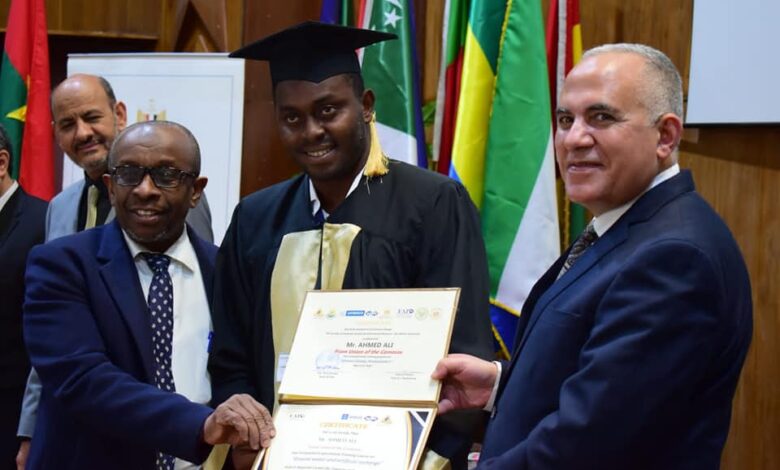
The Egyptian Minister of Irrigation and Water Resources Mohamed Abdel-Aty said that bilateral cooperation with countries of the Nile Basin countries and Africa is one of the most important parts of Egyptian foreign policy, in light of his nation’s various technical and institutional expertise in water resources and other fields.
He added that bilateral cooperation with Nile Basin countries contributes to achieving sustainable development and raising the standard of living of citizens.
It will also help in facing challenges to the African continent, such as overpopulation and the spread of poverty, illiteracy and diseases.
He explained that this cooperation is carried out through the implementation of several development projects that will directly benefit citizens of those countries.
Abdel-Aty made his statement as he handed 48 trainees from 22 African countries certificates of completion the two training programs in “integrated water management in light of climate change” and “ground water and artificial charging,” which were organized by the ministry’s regional training center.
The students expressed their honor to be in Egypt and participate in the training program. They further praised the regional training center and its training and logistical capabilities.
The two training programs were held with the participation of 48 trainees from 22 African countries: Burundi, Democratic Republic of the Congo, Equatorial Guinea, Gabon, Malawi, Angola, Ghana, South Sudan, Burkina Faso, Benin, Central Africa, Sierra Leone, Mali, Comoros, Senegal, Cote Ivory Coast, Cameroon, Sudan, Mauritius, Chad, Djibouti, and Rwanda.
The training program “Ground Water and Artificial Charging” was implemented from March 6 to April 7, 2022, with the participation of 24 trainees from 17 African countries: Burundi, Democratic Republic of the Congo, Equatorial Guinea, Gabon, Malawi, Angola, Ghana, South Sudan, Burkina Faso, Benin, Central Africa, Sierra Leone, Mali, Comoros, Senegal, Cote d’Ivoire, and Cameroon, which included a number of important topics in the field of rational groundwater management.




